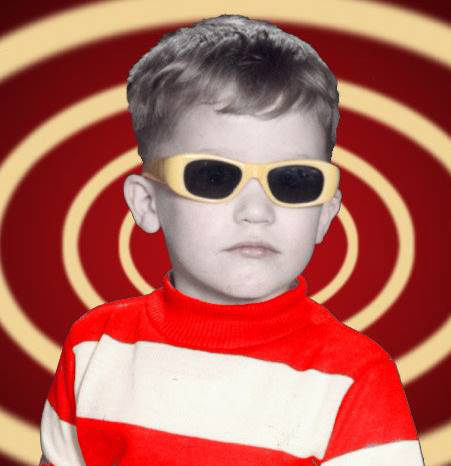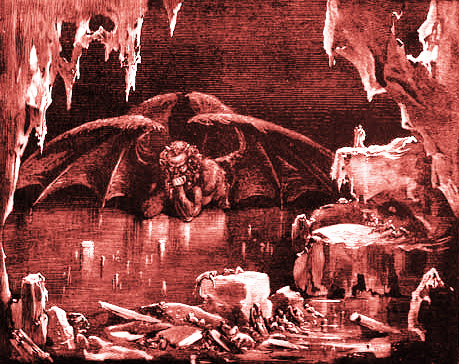Here in Milano, where my daughters attend an American school, which observes American holidays, they will have October 8th off as their school celebrates Columbus Day.
Christopher Columbus was an Italian navigator and colonist who sailed for Spain, who we were told in elementary school, discovered America.
And by America, we mean he discovered the Bahamas, South America, Central America, and Cuba. The only parts of the United States we can truthfully say Columbus discovered are the Virgin Islands and Puerto Rico.
And when we say discovered, we need to mention that Columbus was absolutely convinced he had made it to the Indies, calling the inhabitants “Indians,” a mistake which requires continuous clarification to this day. There is, in fact, no consensus amongst historians that he ever understood that he had landed on a continent that was previously unknown—unknown, that is, to Europeans.
Video: Here in Milano, on Columbus Day
Because when we say discovered, we must exclude the voyages of Lief Erikson, the Norse explorer who set foot on the Americas about 500 years before Columbus landed on San Salvador.
And when we say discovered, we must definitely exclude the inhabitants of the islands whose ancestors had lived in the Americas for well over 13,000 years.
The Arawaks were curious about the Columbus and his men, and as it has been noted in multiple reports, they very open and very generous. In his captain’s log, Columbus wrote, “They would make fine servants. With fifty men we could subjugate them all and make them do whatever one wished.”
And so Columbus subjugated them. His men took women and children as slaves for sex and labor. He forced the men into the mines to dig for gold. If they did not reach their quotas, his men would hack off their hands. When the terrified Arawaks tried to escape into the hills, the Spaniards sent their dogs to hunt them down and kill them.
Historian Howard Zinn writes, “Trying to put together an army of resistance, the Arawaks faced Spaniards who had armor, muskets, swords and horses. When the Spaniards took prisoners they hanged them or burned them to death. Among the Arawaks, mass suicides began. Infants were killed to save them from the Spaniards.
“In two years, through murder, mutilation, or suicide, half of the 250,000 Indians on Haiti were dead. . . . By the year 1515, there were perhaps fifty thousand Indians left. By 1550, there were 500. A report of the year 1650 shows none of the original Arawaks or their descendants left on the island.”
As a kid, the explorations had been my favorite part of American history. I loved the maps of the voyages. I loved the early maps that showed the Americas as barely recognizable landmasses, that grew more realistic as more explorations were made, as more information was gathered.
While Columbus’s first voyage across the Atlantic may have been the 1492 equivalent of Apollo 11, I now think the whole thing makes for a wildly inappropriate national holiday for the United States.
And by inappropriate, I mean for the enlightenment-inspired “all men are created equal” United States; the United States that was founded on freedom of speech, freedom of the press, equality, and religious tolerance; the United States that fought against the Nazis in World War Two, the United States that welcomed immigrants with open arms, especially, especially those fleeing existential life-threatening situations; the United States that was founded on the belief the government’s primary purpose is to protect the rights of its people, that all people are entitled to certain rights by virtue of simply being human. For that America, celebrating Columbus Day is totally inappropriate.
As opposed to the other America, the one that decimated the Native American population, put citizens of Japanese ancestry into concentration camps, that not only stands by but stands in the way as women are shamed after coming forward after being raped or sexually harassed; the America that sits by today while law-abiding African American citizens are murdered by police officers who are not held accountable, who are not even safe in their own homes.
The America that does not welcome immigrants seeking asylum, but actively destroys families by taking their children.
Now for that America, celebrating Columbus—who not only initiated the trans-Atlantic slave trade, but also engineered the first genocide of indigenous people in the New World—for that America, celebrating the mercenary sailor Christopher Columbus is totally appropriate.
———————————————————————————
An earlier version of this column appeared here a year ago
Sources, Notes, and Further Reading
A People’s History of the United States
By Howard Zinn
https://www.amazon.com/Peoples-History-United-States-ebook/dp/B015XEWZHI/ref=sr_1_1?s=digital-text&ie=UTF8&qid=1537112246&sr=1-1&keywords=howard+zinn
A Short Account of the Destruction of the Indies
by Bartolomé de las Casas
https://www.amazon.com/Short-Account-Destruction-Indies-dp-1539797724/dp/1539797724/ref=mt_paperback?_encoding=UTF8&me=&qid=1537112362
https://en.wikipedia.org/wiki/Bartolomé_de_las_Casas
Common Sense
By Thomas Paine
https://www.amazon.com/Common-Sense-Dover-Thrift-Editions/dp/0486296024/ref=sr_1_3?ie=UTF8&qid=1537113037&sr=8-3&keywords=common+sense+thomas+paine
https://en.wikipedia.org/wiki/Common_Sense_(pamphlet)
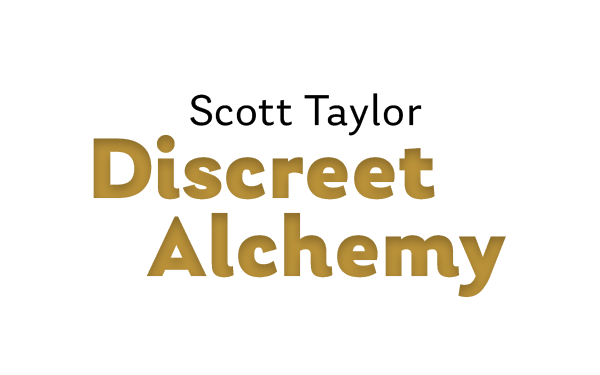
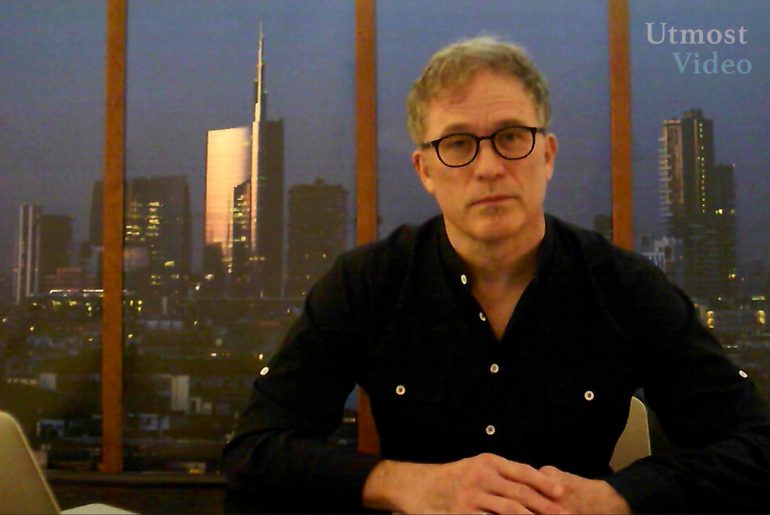
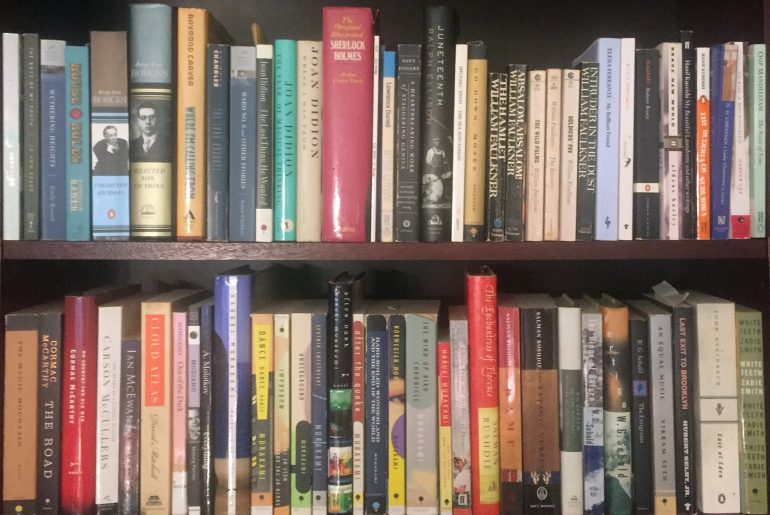

 Maria Popova’s love of literature, of books, of physical books, is palpable. A post on her Brain Pickings site will usually focus a single book. She interacts with it, gives her own impressions, and lets us know what books, articles, essays, stories, it reminds her of. She brings in other writers to elucidate and complement the topic. A post will usually include up to 10 links to other subjects she’s written on, all potential rabbit holes of reading. I find it hard to keep up with her impressive output.
Maria Popova’s love of literature, of books, of physical books, is palpable. A post on her Brain Pickings site will usually focus a single book. She interacts with it, gives her own impressions, and lets us know what books, articles, essays, stories, it reminds her of. She brings in other writers to elucidate and complement the topic. A post will usually include up to 10 links to other subjects she’s written on, all potential rabbit holes of reading. I find it hard to keep up with her impressive output.
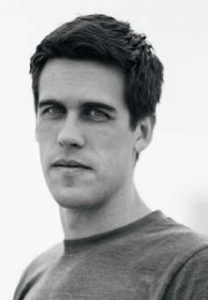 Ryan Holiday is a voracious reader. Part of the success of his books—in particular,
Ryan Holiday is a voracious reader. Part of the success of his books—in particular, 
 Tim Ferriss
Tim Ferriss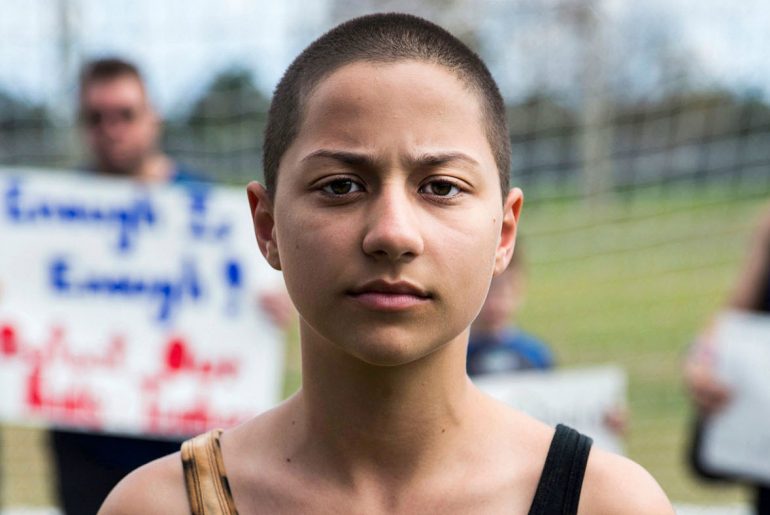
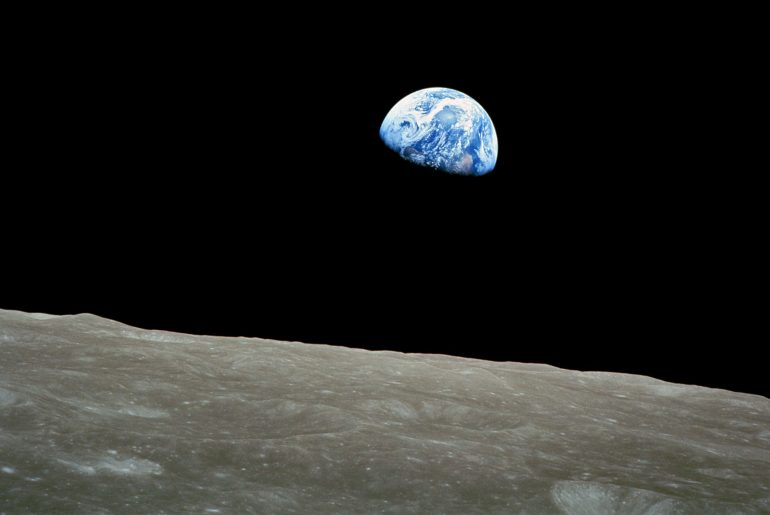

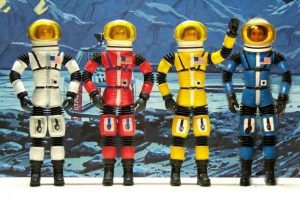
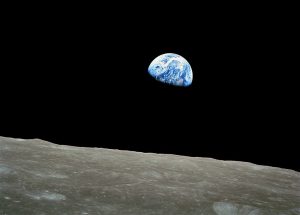
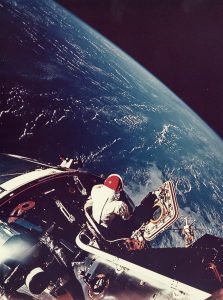
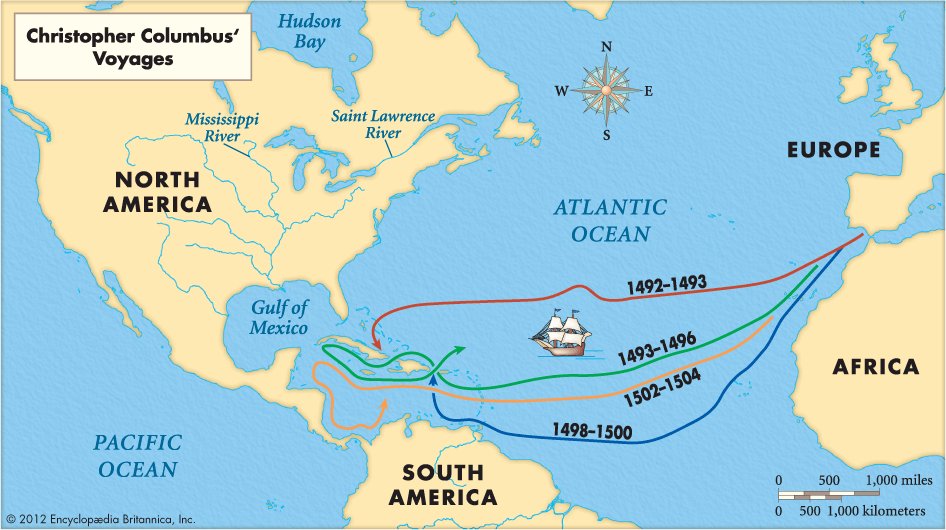
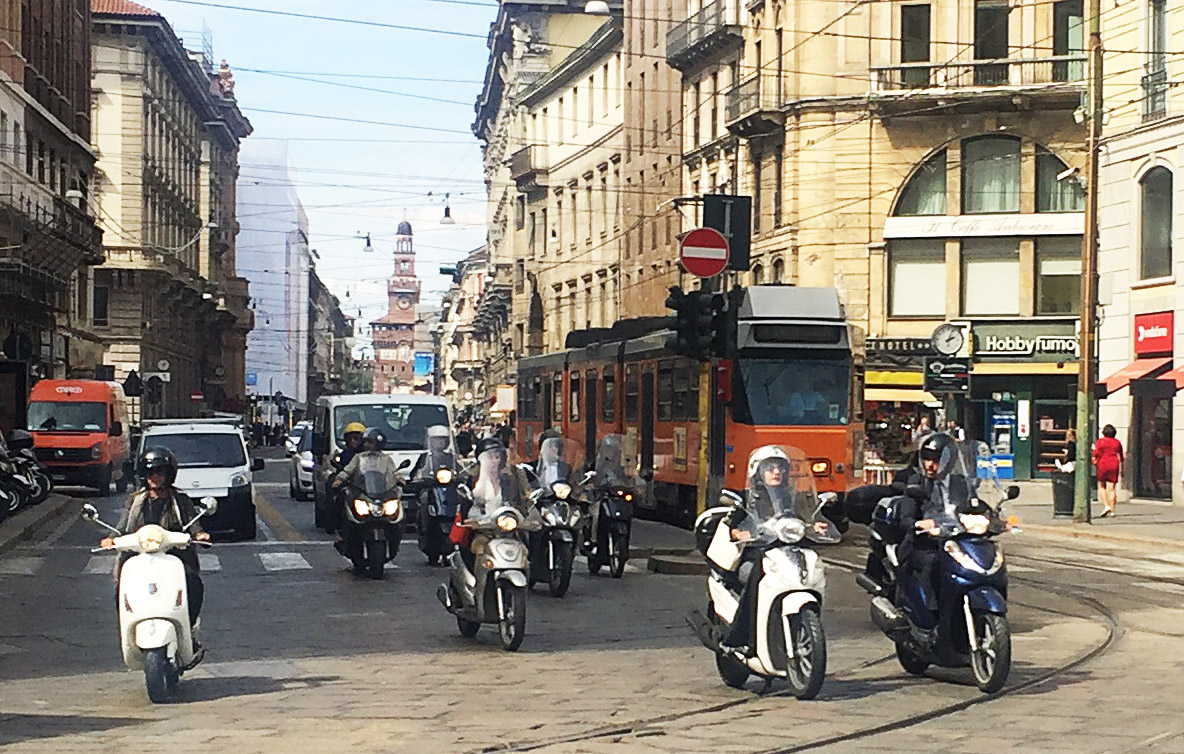
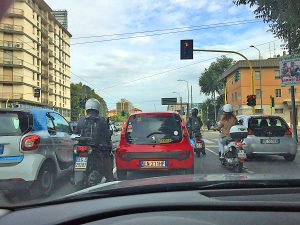
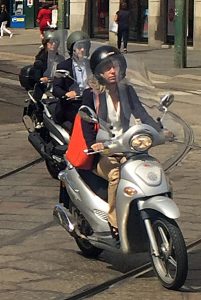 With all the opportunistic and creative lane-changers, the acrobatic scooterists, some incredibly complicated intersections involving up to five streets, two train routes, and possibly a canal, you have to pay air-traffic-controller-like attention. Defensive driving taken to a new level is necessary here. You must be present, very present grasshopper. Set your mirrors carefully. Assume that there’s someone in your blind spot.
With all the opportunistic and creative lane-changers, the acrobatic scooterists, some incredibly complicated intersections involving up to five streets, two train routes, and possibly a canal, you have to pay air-traffic-controller-like attention. Defensive driving taken to a new level is necessary here. You must be present, very present grasshopper. Set your mirrors carefully. Assume that there’s someone in your blind spot.
 If you find yourself on one of the streets, you have to nose your car out when there’s a gap in the traffic coming the other direction, and then hope your confidence springs a gap so you can make your left turn. I try to let one of these cars through when I’m able to do so. Despite my appreciation of Buddhism, I do not believe in any sort of karma-magic. Personally though, I do feel better about inserting my way into traffic if I’ve been on the other side of the equation a number of times. Possibly, this is what karma is supposed to be about anyway. When you have time, and can put yourself in that person’s shoes, it’s an easy decision to make.
If you find yourself on one of the streets, you have to nose your car out when there’s a gap in the traffic coming the other direction, and then hope your confidence springs a gap so you can make your left turn. I try to let one of these cars through when I’m able to do so. Despite my appreciation of Buddhism, I do not believe in any sort of karma-magic. Personally though, I do feel better about inserting my way into traffic if I’ve been on the other side of the equation a number of times. Possibly, this is what karma is supposed to be about anyway. When you have time, and can put yourself in that person’s shoes, it’s an easy decision to make.
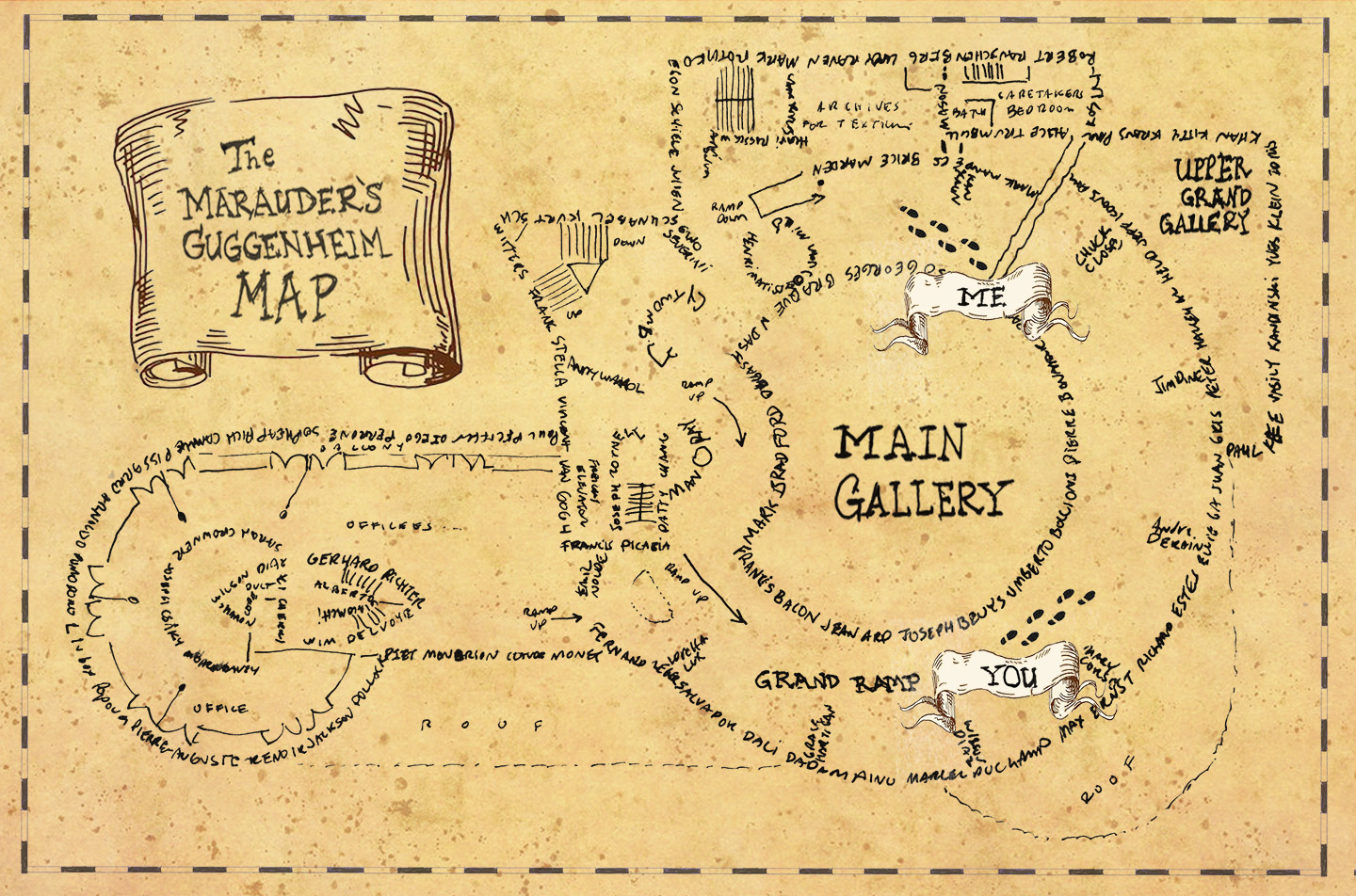
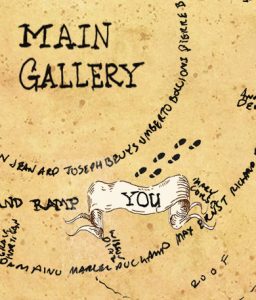 If we were to expand our range from “same place, same time,” to “same block, same hour,” then the chances must go up considerably. The odds that there could be someone we know with a block or an hour of us, would have to
If we were to expand our range from “same place, same time,” to “same block, same hour,” then the chances must go up considerably. The odds that there could be someone we know with a block or an hour of us, would have to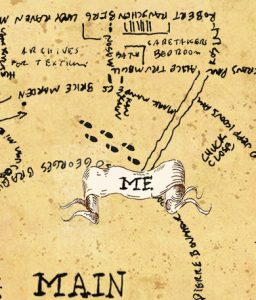 I was recently at the Linate airport in Milan, waiting to pick up my daughter. As I looked through the faces, ready to pick out hers, people coming through the gate started reminding me of friends and acquaintances—this person’s eyes, that person’s hair, the way that guy walked. One woman looked so much like a nanny the girls had a few years ago, I had to do a double take—it was not her but it absolutely could have been an older sister.
I was recently at the Linate airport in Milan, waiting to pick up my daughter. As I looked through the faces, ready to pick out hers, people coming through the gate started reminding me of friends and acquaintances—this person’s eyes, that person’s hair, the way that guy walked. One woman looked so much like a nanny the girls had a few years ago, I had to do a double take—it was not her but it absolutely could have been an older sister.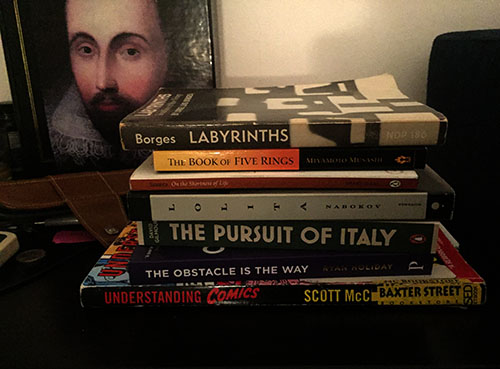
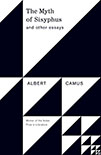 Books I’m reading
Books I’m reading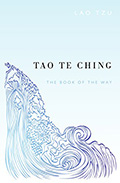 Books I’ve Read More than Once in the Past Year
Books I’ve Read More than Once in the Past Year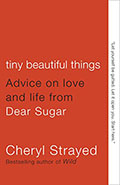 Recent Favorites
Recent Favorites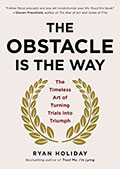 Recent Favorite Audio Books
Recent Favorite Audio Books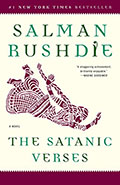 Books I need to reread
Books I need to reread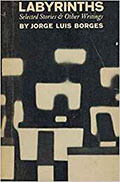 Books currently on my nightstand
Books currently on my nightstand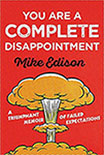 Last five books read
Last five books read Last five books read on kindle
Last five books read on kindle Last five poetry books I’ve read from
Last five poetry books I’ve read from Graphic Novels
Graphic Novels Books currently on our coffee table
Books currently on our coffee table The Next Five Books
The Next Five Books